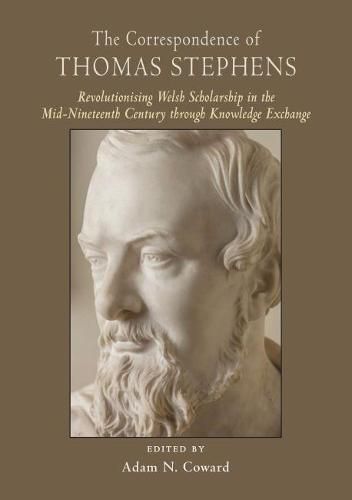Readings Newsletter
Become a Readings Member to make your shopping experience even easier.
Sign in or sign up for free!
You’re not far away from qualifying for FREE standard shipping within Australia
You’ve qualified for FREE standard shipping within Australia
The cart is loading…






Thomas Stephens was one of the most significant and controversial nineteenth-century Welsh scholars. His Literature of the Kymry (1849) was the first work to apply modern critical scholarship to medieval Welsh literature. Throughout his career, he was an outspoken critic of unscrupulous interpretations of the Welsh and Celtic past. His scholarly ability brought him into correspondence with notable writers from not only Wales, but across the world. Indeed, writing the year after his death, B. T. Williams noted that the publication of his correspondence ‘would be welcomed by all Celtic scholars’, as it includes comments by many of the most noted historians, literary critics and Celticists of his day on a wide range of subjects. More than this, however, Stephens’s correspondence shows the complex networks of knowledge exchange which stretched across the nineteenth-century scholarly world and, within those networks, the development of modern Welsh and Celtic studies.
$9.00 standard shipping within Australia
FREE standard shipping within Australia for orders over $100.00
Express & International shipping calculated at checkout
Thomas Stephens was one of the most significant and controversial nineteenth-century Welsh scholars. His Literature of the Kymry (1849) was the first work to apply modern critical scholarship to medieval Welsh literature. Throughout his career, he was an outspoken critic of unscrupulous interpretations of the Welsh and Celtic past. His scholarly ability brought him into correspondence with notable writers from not only Wales, but across the world. Indeed, writing the year after his death, B. T. Williams noted that the publication of his correspondence ‘would be welcomed by all Celtic scholars’, as it includes comments by many of the most noted historians, literary critics and Celticists of his day on a wide range of subjects. More than this, however, Stephens’s correspondence shows the complex networks of knowledge exchange which stretched across the nineteenth-century scholarly world and, within those networks, the development of modern Welsh and Celtic studies.